The ‘Value Addition’ and ‘Alternative Income Generation Projects’ in Central Asia funded by SECO benefits 2800 cotton farmer members!
Fairtrade standards and policies are crafted to put the spotlight on cotton farmers who are often left invisible, neglected, and poor at the end of a long and complex cotton supply chain. Through tools like the Fairtrade Minimum Price and an additional Fairtrade Premium and stronger, more democratic organisations, Fairtrade has sought to provide these farmers with an alternative route to trade and higher, more stable incomes.
Cotton farmers grapple not only with price volatility but also with competition from other sources. Beyond the markets, unpredictable droughts and heavy rains have hit the cotton farmers hard. The impact on COVID 19 on the other hand has greatly weakened their social and economic rights.
To strive for a fair fashion industry, we need commitments from the entire value chain; from farmers to consumers for the way clothing is produced, sourced, and consumed. Sustainable partnership and collaboration are one of the keys to addressing some of the major challenges faced by the industry, it can not only help recognise a dignified working atmosphere for the farmers and workers who make your clothes but also involve in creating better working conditions for them to thrive sustainably.
In 2020 October NAPP entered into an agreement with Maxhavelaar Switzerland to help the producer organizations across the Asia Pacific recover and build their resilience during COVID-19. All the activities are funded by SECO ( State Secretariat for Economic Affairs of Switzerland ). The value addition and income generation projects of 02 cotton producers in Central Asia were selected to be driven under the partnership among others.
At Fairtrade, approx. 95 percent of the cotton is produced by over 34,000+ cotton farmers across Central and South Asia. Bio farmer, a Fairtrade cotton producer in Central Asia has 1200 farmer-members with a total area of 2950 hectares. It works exclusively (98%) with smallholder producers who own an area of fewer than 2 hectares out of which 19.15 % of the members are organic farmers.
Due to the fear of getting infected, their employees prefer not to go to work. Since agriculture is not a work-from-home business, the local authorities require farm companies and agricultural cooperatives to comply with strict measures to prevent infection among employees. Since the cotton is harvested manually, it also increases the chance of infections among the permanent and seasonal farmers as well. The main priority of the Cooperative is to increase the security measures among the employees and make provisions for providing regular safety-gears to the farmers. The support to some extent will guarantee the work of permanent employees and, also ensure the safety of the farmers while harvesting the crops. With the support from the SECO fund, the Cooperative will be setting up a mini sewing factory where the women from the cooperative will be employed to sew cotton medical masks and gowns to be worn by the farmers while working on the fields. Currently, the factory is under construction and all its equipment has been purchased (11 sewing machines, 2 cutting tables, 1 steam iron, 4 electric scissors, 1 hanger) and stored in the warehouse. Once the sewing factory is built, it will be installed in the workshop.

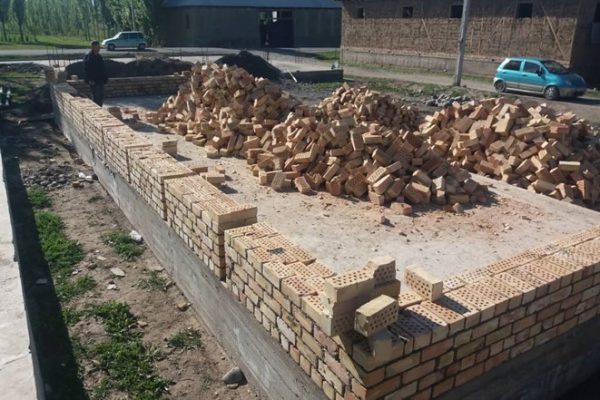
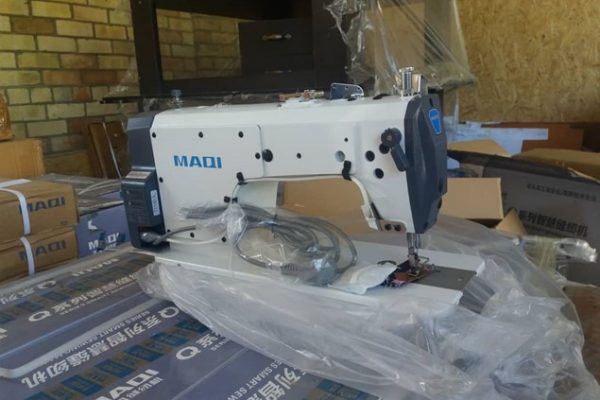
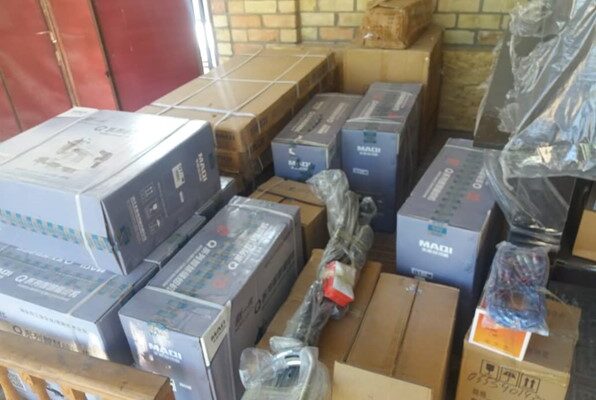
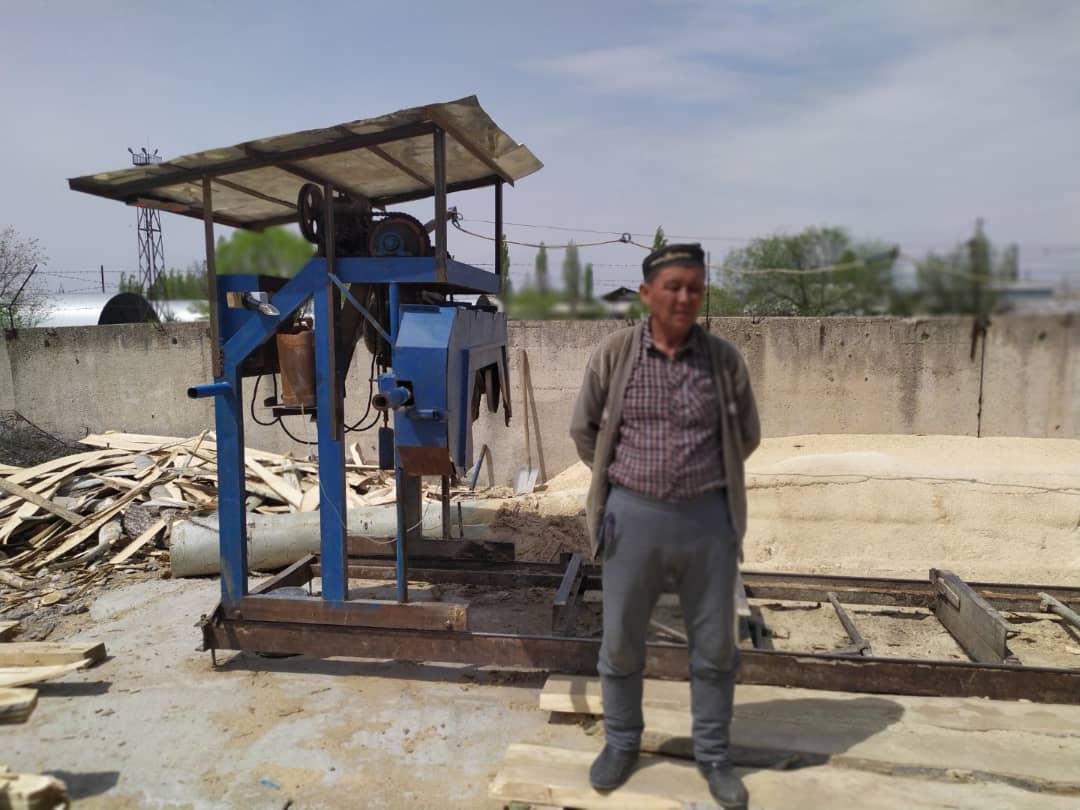 Due to COVID-19 pandemic, we lost a lot of time in obtaining permits for the construction. Currently, the situation has improved slightly, and we have started the construction of the workshop and we intend to complete the construction according to the set plans. This project will help us provide our farmers with protective masks during the pandemic and provide jobs for 10 women from farming families. The sewing workshop will be able to take external orders for sewing masks. We intend to provide farmers with aprons for picking raw cotton, this will ensure the quality of raw cotton when picking and also increase the income of our farmers from the sale of quality Fairtrade and organic fiber cotton.- Karaev Zakirjan, a farmer member at Bio Farmer.
Due to COVID-19 pandemic, we lost a lot of time in obtaining permits for the construction. Currently, the situation has improved slightly, and we have started the construction of the workshop and we intend to complete the construction according to the set plans. This project will help us provide our farmers with protective masks during the pandemic and provide jobs for 10 women from farming families. The sewing workshop will be able to take external orders for sewing masks. We intend to provide farmers with aprons for picking raw cotton, this will ensure the quality of raw cotton when picking and also increase the income of our farmers from the sale of quality Fairtrade and organic fiber cotton.- Karaev Zakirjan, a farmer member at Bio Farmer.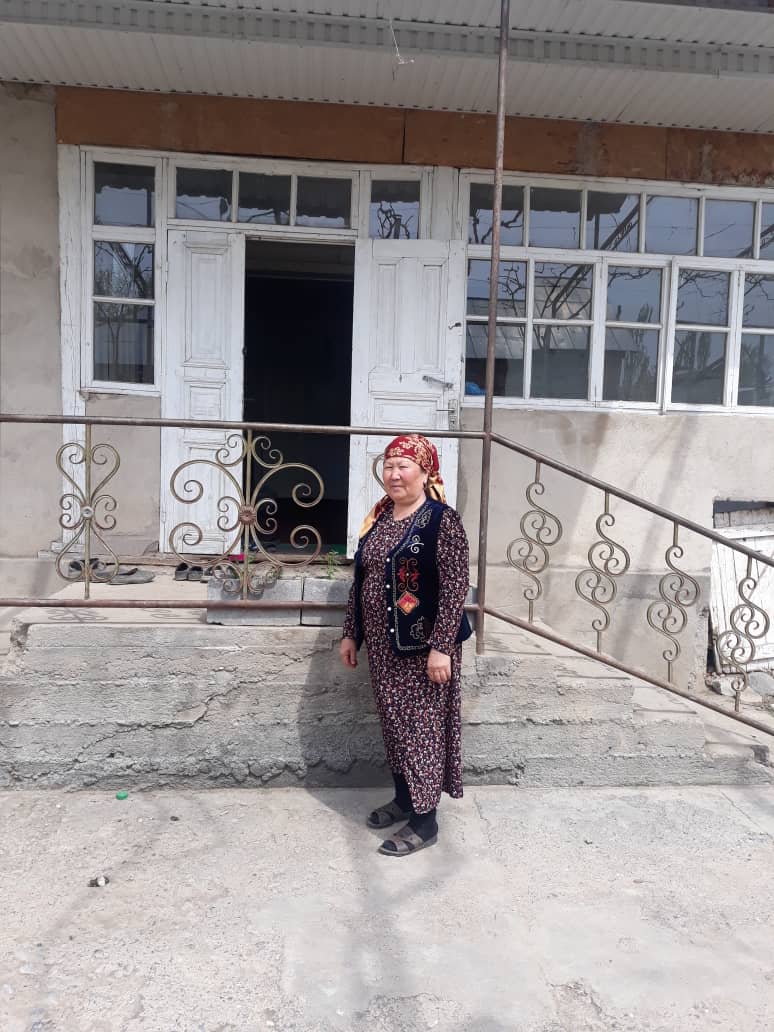 Through the support from Fairtrade projects, we have access to better means of livelihood. In the past, we have managed to build a building for storing our livestock and now hope to further improve our livelihood through the sewing workshop.
Through the support from Fairtrade projects, we have access to better means of livelihood. In the past, we have managed to build a building for storing our livestock and now hope to further improve our livelihood through the sewing workshop.